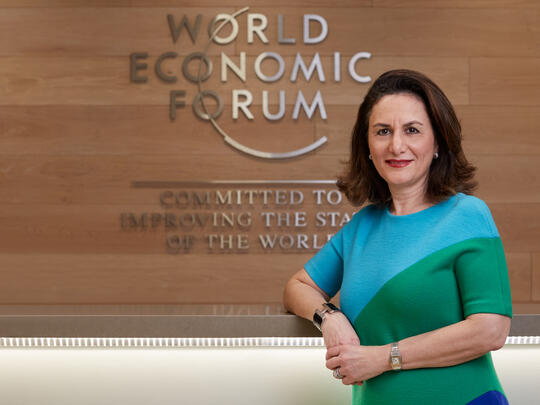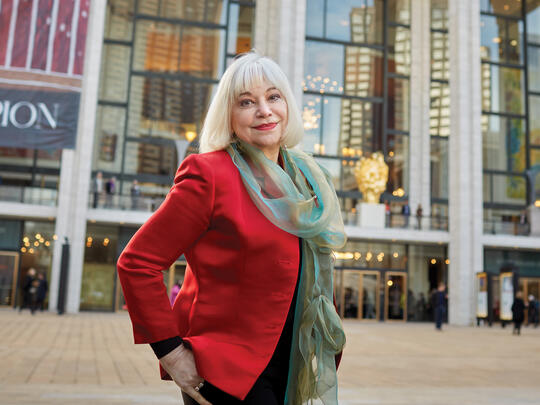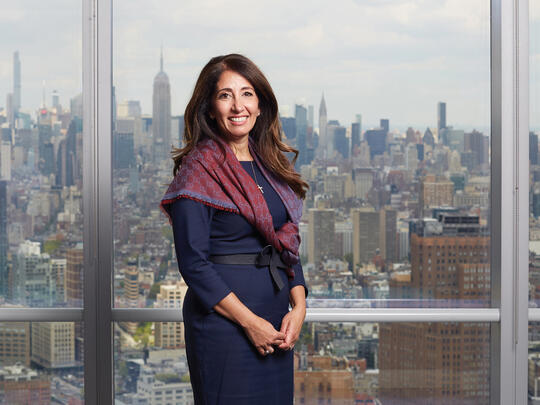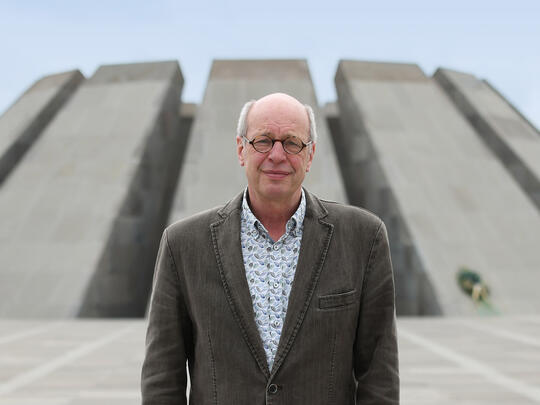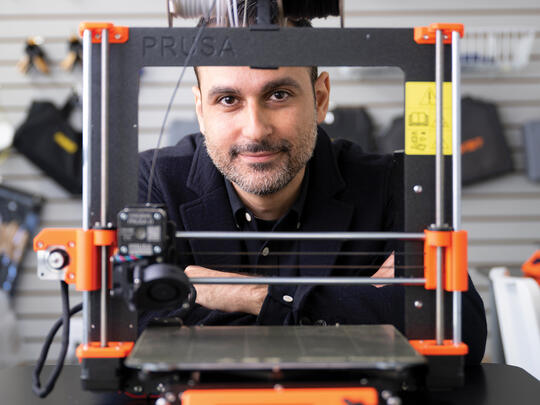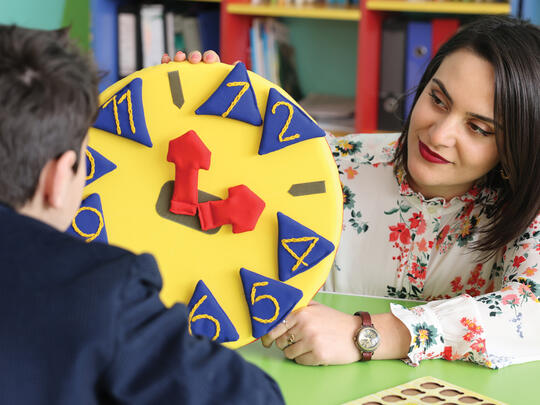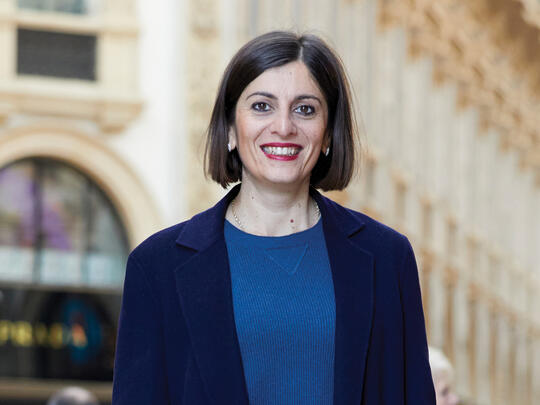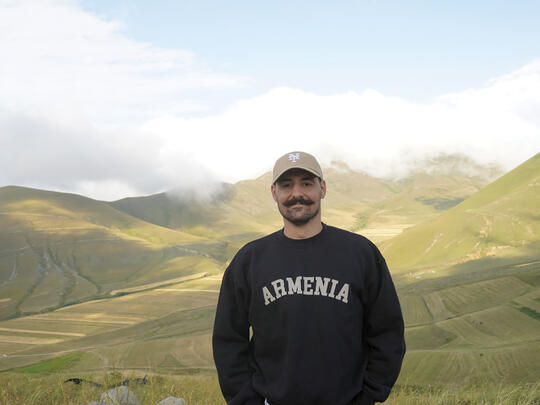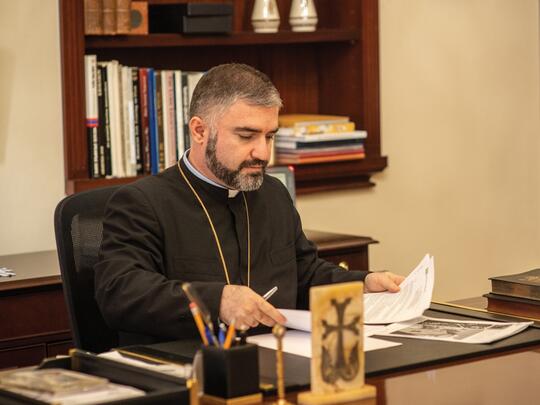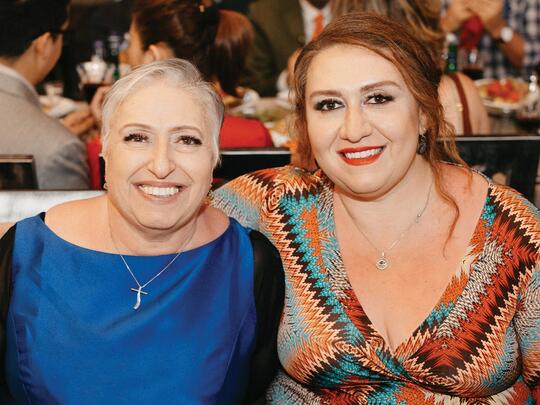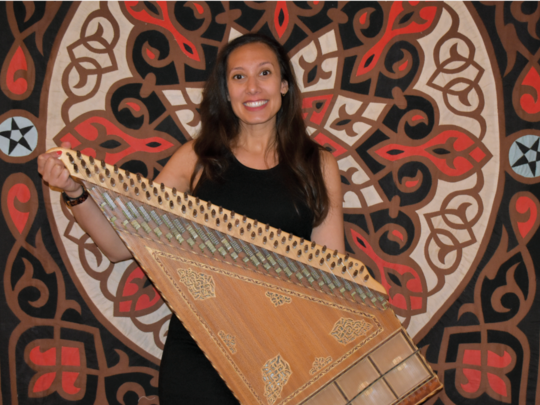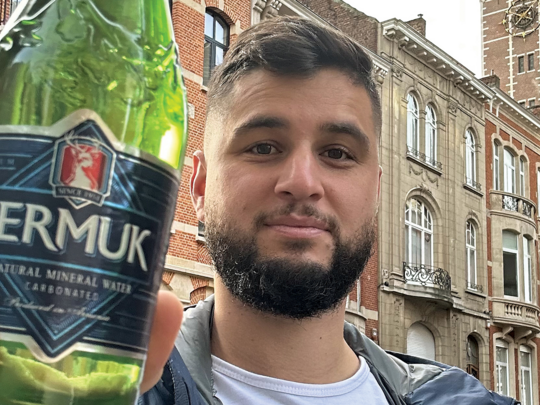
Ahead of Her Time
Y. Gladys Barsamian
In the beginning, when she would go to court, people would often mistake her for a secretary. She was one of only six women in her graduating law class at a time when it was still uncommon to see women judges and attorneys in court.
Y. Gladys Barsamian was a champion of women’s rights and a defender of troubled children—with a famously sharp sense of humor. Whenever anyone asked her what her first initial stood for, the venerable judge would smile slyly and snap, “Your Honor,” with a dry wit beloved to everyone who knew her. In reality, the “Y” stood for Yerchanig—the Armenian word for “glad,” which she later turned into the name she went by professionally: Gladys. It was a name that not only connected her to her Armenian heritage, but would come to define her outlook on life all throughout her long, successful career.
Gladys was born in Detroit in 1931 and was the oldest of five daughters born to newly arrived immigrants from Yozgat in rural Anatolia. Strong-willed and determined even as a child, Gladys excelled in her studies and developed an interest in law, thanks to her strong belief in defending those who could not defend themselves.
After graduating from Wayne State University in Michigan with a law degree and passing the Michigan bar in 1957, Gladys spent 17 years in private practice in Detroit as an immigration attorney, often doing pro bono work for new Americans like her own family. When a seat opened on the Wayne County Probate Bench in 1975, she decided to run for the post, dismissing all those who told her that her last name and her gender would work against her. She ultimately won the election and continued helping the disadvantaged through her work in the juvenile division. “In the beginning, when she would go to court,” her dear friend Rose Berberian said, “people would often mistake her for a secretary. She was one of only six women in her graduating law class at a time when it was still uncommon to see women judges and attorneys in court.” Gladys also encountered opposition in her greater Detroit community, especially from other women who questioned her decision to pursue a high-powered career rather than a domestic life as a wife and mother.
But Gladys had a strong sense of self and was always confident in her choices, which had a major impact on the world around her. As the first woman elected to the probate court, she ruled on many cases that received national attention, including a landmark decision that determined the rights of surrogate mothers—the first of its kind in the United States. During her tenure on the bench, she helped develop a countywide juvenile justice plan that included an intensive probation program, a recidivism predictor, a youth assistance program and formed a citizens’ advisory committee, leaving an indelible mark on the justice system in Michigan.
When Gladys retired in 1993, she stayed active in her community by serving on several boards that dealt with the issues that concerned her most, including Downtown YMCA, Michigan Committee on Juvenile Justice, Women Lawyers Association of Michigan, Boys and Girls Club of Southeastern Michigan as well as the boards of numerous Armenian organizations, such as St. John’s Armenian Church, where she taught Sunday School for many years. She was also a founding member of the International Women’s Forum of Michigan, a group that advances leadership across careers, cultures and continents by connecting the world’s most preeminent women of significant and diverse achievement.
Gladys had a special place in her heart for the advancement of the Armenian community, devoting her time to mentoring Armenian men and women running to be judges and serving on the AGBU Alex & Marie Manoogian School Board to ensure an excellent education for young Armenians in Michigan. When she passed away in January 2016, she had arranged to continue to support the development of the Armenian community with a major donation to AGBU. She believed most ardently in the work of the AGBU Senior Dining Centers in the Yerevan suburbs of Arapkir, Malatya and Nork, which provide nutritious meals to over 600 senior citizens each day. These centers are a lifeline for retired professionals who often must rely on minimal state pensions to cover their expenses.
After an entire career helping those who needed it most, Gladys is continuing her legacy of goodwill by improving the lives of others at the AGBU Senior Dining Centers in Armenia.


